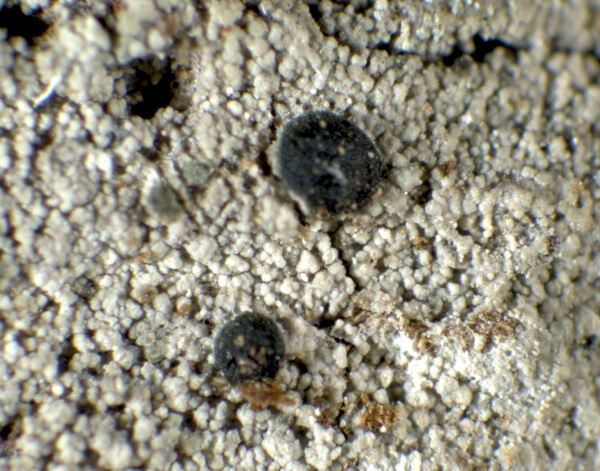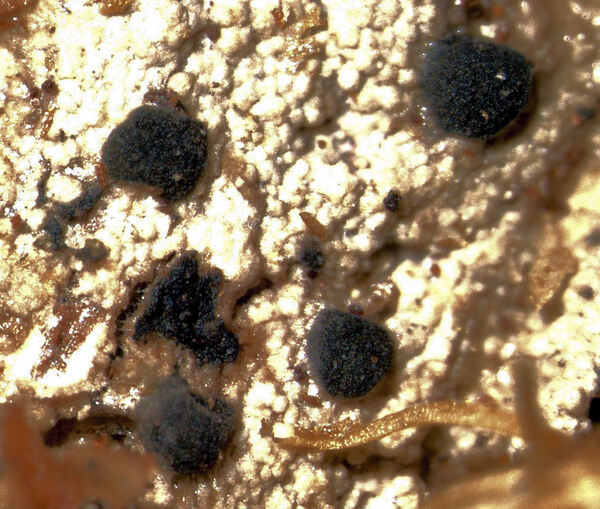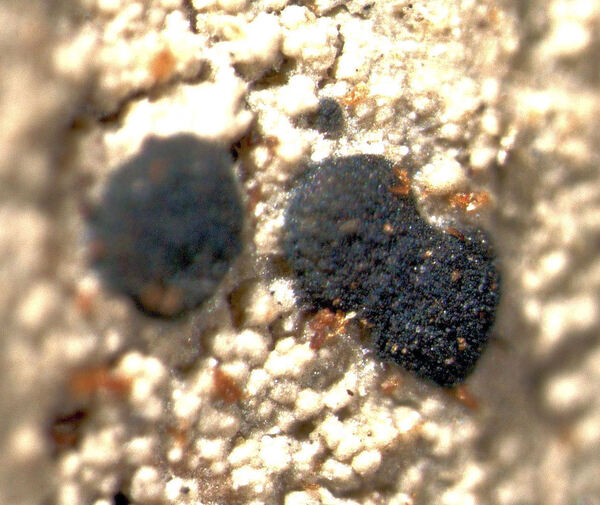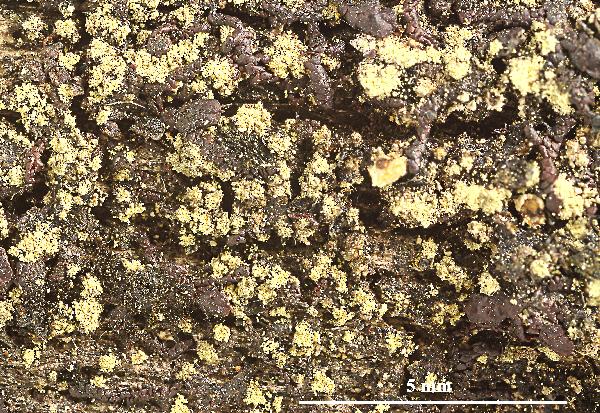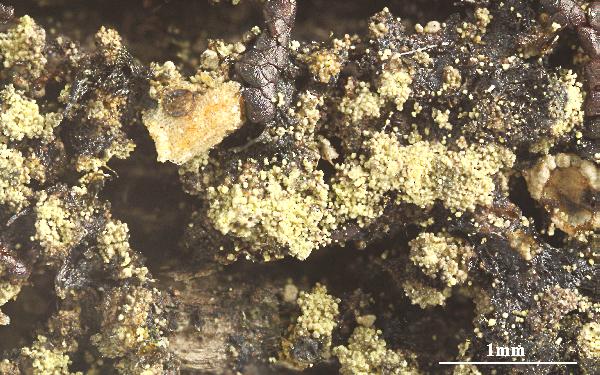Trapeliopsis viridescens (Schrad.) Coppins & P. James
Lichenologist, 16: 263, 1984. Basionym: Lichen viridescens Schrad. in Gmelin - Syst. Nat., 2, 2: 1361, 1792.
Synonyms: Biatora sphaeroides f. viridescens (Schrad.) Rabenh.; Biatora viridescens (Schrad.) W. Mann; Biatora viridescens var. putrida (Körb.) Hazsl.; Lecidea viridescens (Schrad.) Ach.; Micarea viridescens (Schrad.) Brodo; Trapelia viridescens (Schrad.) V. Wirth
Description: Thallus crustose, episubstratic, minutely granular, whitish, pale grey or pale green, when young of minute areoles, but soon almost completely covered with farinose, c. 0.1 mm wide soredia, giving the thallus a subleprose appearance. Apothecia lecideine, green-black to black, usually clustered, 0.2-0.6(-1) mm across, with an often tuberculate, soon convex disc, and a soon excluded proper margin. Proper exciple poorly developed, mostly colourless, of densely entangled hyphae; epithecium brownish; hymenium colourless, I+ blue; paraphyses thin, strongly coherent, richly branched and anastomosing, only slightly swollen at tips; hypothecium colourless. sometimes with brownish, Ascospores 1-celled, hyaline, ellipsoid, (7-)9-13 x 3.5-5(-6) µm. Photobiont chlorococcoid. Spot tests: thallus K-, C+ red, KC+ red, P-. Chemistry: gyrophoric acid plus unknown substances.
Growth form: Crustose
Substrata: lignum
Photobiont: green algae other than Trentepohlia
Reproductive strategy: mainly asexual, by soredia, or soredia-like structures (e.g. blastidia)
Commonnes-rarity: (info)
Alpine belt: absent
Subalpine belt: rather rare
Montane belt: very rare
Dry submediterranean belt: absent
Humid submediterranean belt: absent
Padanian area: absent
pH of the substrata:
1 2 3 4 5
Solar irradiation:
1 2 3 4 5
Aridity:
1 2 3 4 5
Eutrophication:
1 2 3 4 5
Poleotolerance:
0 1 2 3
Altitudinal distribution:
1 2 3 4 5 6
Rarity
absent
extremely rare
very rare
rare
rather rare
rather common
common
very common
extremely common
Loading data...
Occurrence data
Predictive map
Growth form: Crustose
Substrata: lignum
Photobiont: green algae other than Trentepohlia
Reproductive strategy: mainly asexual, by soredia, or soredia-like structures (e.g. blastidia)
Commonnes-rarity: (info)
Alpine belt: absent
Subalpine belt: rather rare
Montane belt: very rare
Dry submediterranean belt: absent
Humid submediterranean belt: absent
Padanian area: absent
pH of the substrata:
| 1 | 2 | 3 | 4 | 5 |
Solar irradiation:
| 1 | 2 | 3 | 4 | 5 |
Aridity:
| 1 | 2 | 3 | 4 | 5 |
Eutrophication:
| 1 | 2 | 3 | 4 | 5 |
Poleotolerance:
| 0 | 1 | 2 | 3 |
Altitudinal distribution:
| 1 | 2 | 3 | 4 | 5 | 6 |
Rarity
absent
extremely rare
very rare
rare
rather rare
rather common
common
very common
extremely common
Loading data...
Occurrence data
Predictive map


